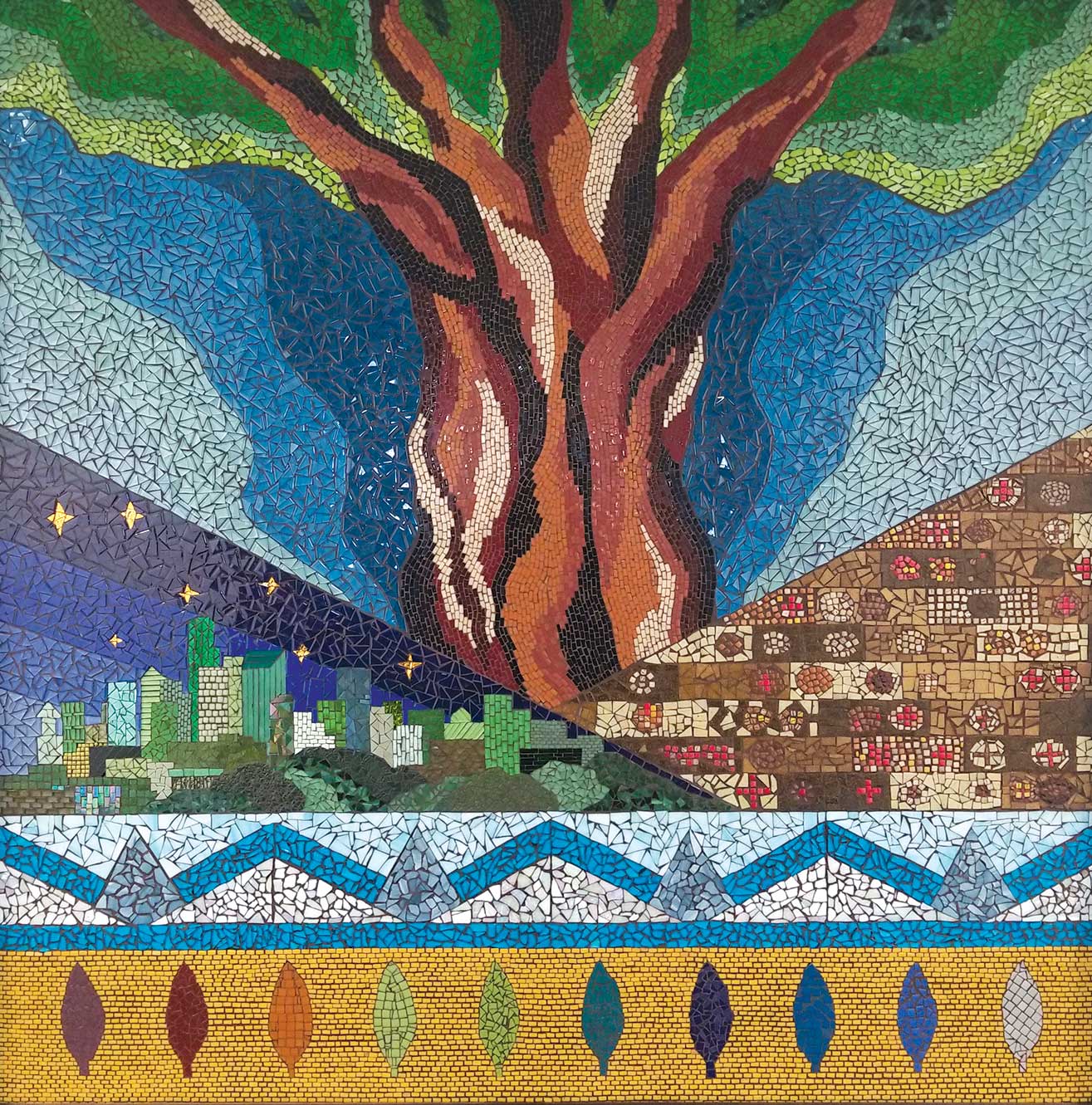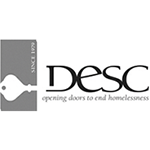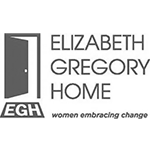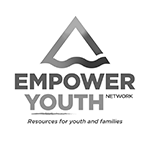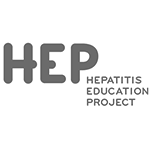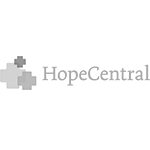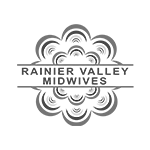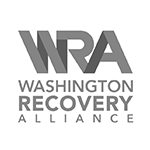
A Year to Rejoice in Relationship
Collaboration is a hallmark of PHPDA’s history. PHPDA was formed 40 years ago with the support of the Public Health Care Coalition—a community effort to preserve the Pacific Tower Campus as a public hospital and an enduring public resource. In the following years, PHPDA contributed funding and support—both on and off campus—to the many organizations who provided health services to the underserved populations in our community. In 2022, we honored our community founders and all the relationships we’ve maintained since.
PHPDA is the result of people coming together around a just cause. An idea becomes a joint plan, which becomes action and impact. At the heart of all effective collaborations are relationships. 2022 was a year for PHPDA to celebrate and strengthen old relationships, build new ones, and help foster connections among others.
”I believe that one of the key ways to work together towards health equity is to find connection points to build on each others’ work to intentionally address systems fragmentation and systems that keep us fragmented. Together, we are stronger than when we are apart.”
Amanda Shi, Tubman Center for Health & Freedom/Former PHPDA Health Equity Scholar
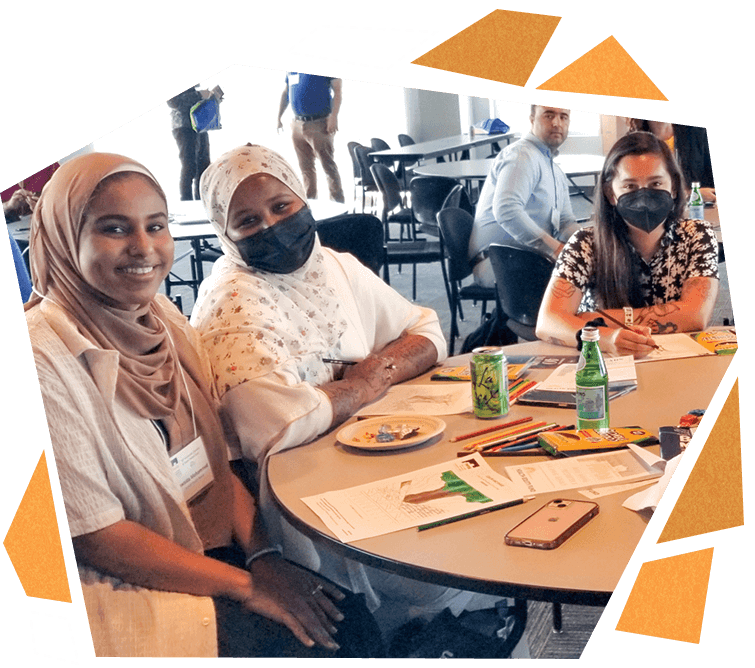
Health Equity is a Collaborative Job
Our partners share our mission of achieving health equity. Together we work to ensure that all people—regardless of race, ethnicity, gender identity, citizenship, or income—have equitable access to the essential healthcare they need to live healthy lives. Collaboration allows us to fill gaps, increase services, pass just policies, and remove barriers so that more people have access to health and well-being.
Seattle University and PHPDA joined together to launch the School of Law’s Health Policy Advocacy Clinic. The inaugural class of students worked with community-based organizations addressing health inequities to distill community learnings into actionable knowledge that can inform future policymaking.
We are meeting regularly with the Beacon Hill Council Seattle: Community Council to listen to the needs of our surrounding community. From transportation issues, to public meeting spaces, to location of needed services, our neighbors are opening up about community priorities, and where PHPDA can step in to help.
Verdant Health Commission is a growing thought partner. Our communities are coming under unique healthcare system pressures, and together we’re learning from one another how to evolve and meet the needs that exist.
Moving at the Speed of Trust

A slow-moving turtle reminds us that every relationship deserves patience, perseverance, and presence. Collaboration, so central to our work, is built on trust, which takes time. Often, we must slow down in our relationships in order to speed up.
Our 40th Anniversary
Community Brings Beauty and Healing into the Tower
To celebrate our 40 years supporting communities for better health, we commissioned a local artist and a mosaic studio to design a shared project with the community that would symbolize our mission.
We worked on the mosaic using the same principles we apply to our work in health equity:
Community Knows Best
The inspired image was created by a local, Beacon Hill artist able to represent the spirit of the Pacific Northwest and the Beacon Hill neighborhood where we’re located.
Strength in Numbers
We wanted as many community members to work on this together as possible.
Turning Vision into Results
The mosaic studio translated the image into a participatory piece of artwork.
The Artist
Angelina Villalobos, Community Muralist, Teaching Artist
Angelina, a native of the Beacon Hill neighborhood, designed the artistic concept and image. Her vision captures PHPDA’s history as a tree, representing health and healing through nature, preservation, and growth. She was inspired by the Seattle skyline viewed from the 8th floor panoramic room, the Pacific Tower’s signature art deco and brick motif, and the health equity work of our colorful and diverse community.
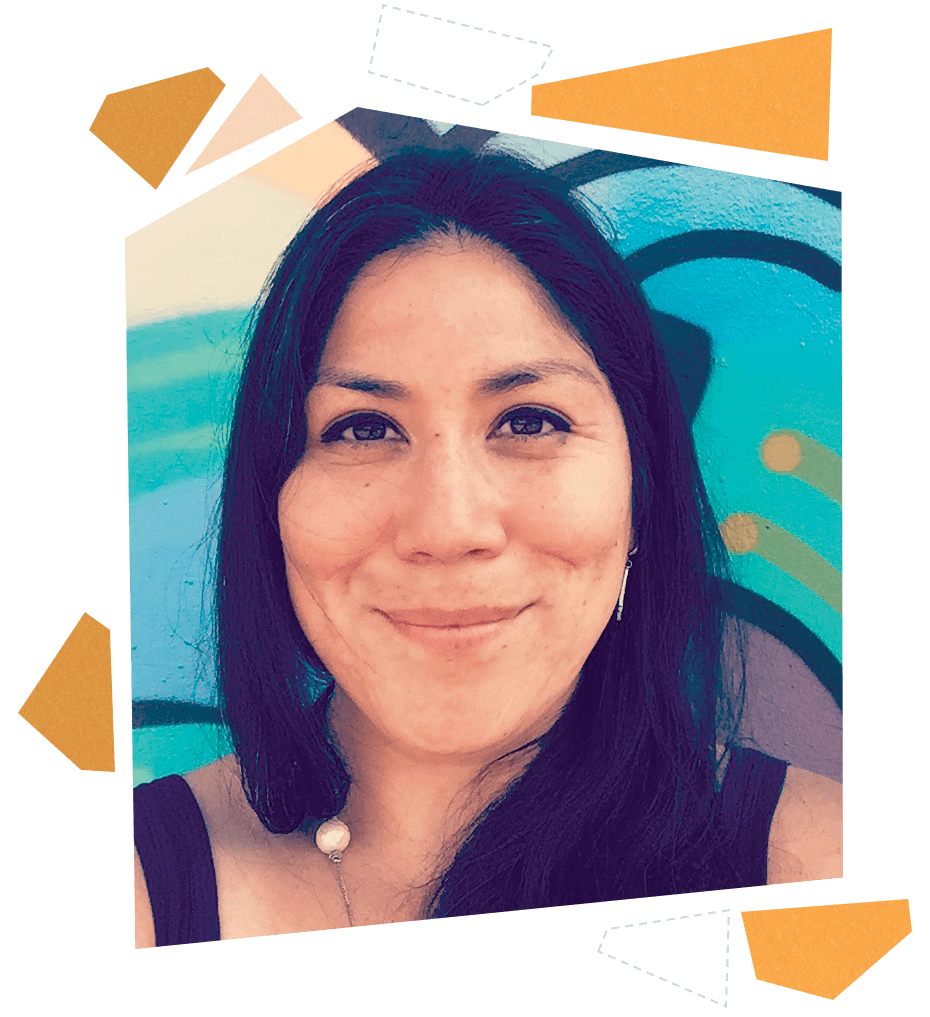
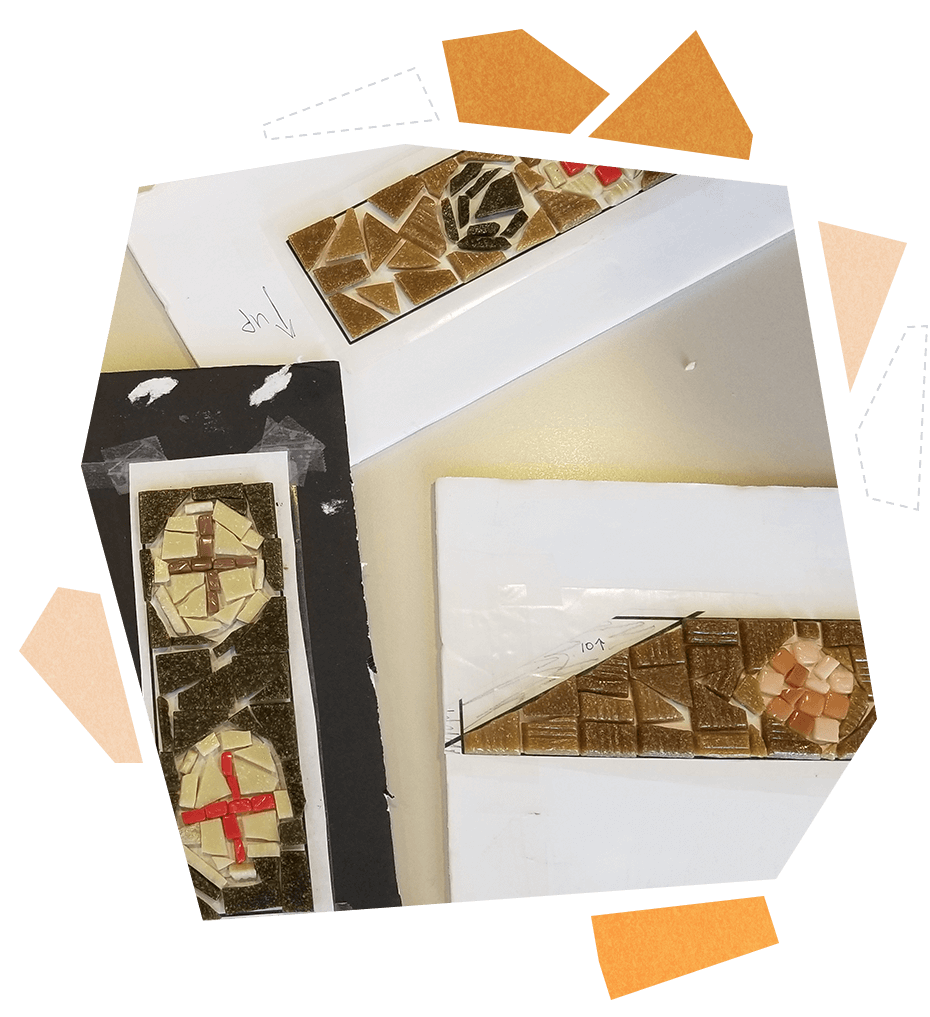
The Mosaic Studio
Dr. Claire Barnett, Founder and Director of Seattle Mosaic Arts
Dr. Barnett is a family doctor of 20+ years and an artist. She was instrumental in fostering community and safe space to be creative, while turning Angelina’s artistic vision into a collaborative project and final masterpiece. After community members created their own templated pieces, she “knit” them together and assisted with final artistic guidance like framing and lighting.
The Community
Nearly 100 people, and perhaps you!
We’re grateful for a creative process that engaged old friends and new partners, bringing people together from Pacific Tower, Beacon Hill, and around Seattle to celebrate 40 years of working toward health equity.
Community members bumped elbows as they built their own unique piece of the whole. Sharing a table and working together sparked inspiring conversations and new connections.
We honor the memory of Thurston Delane Muskelly Sr., who laid down the very first mosaic piece.
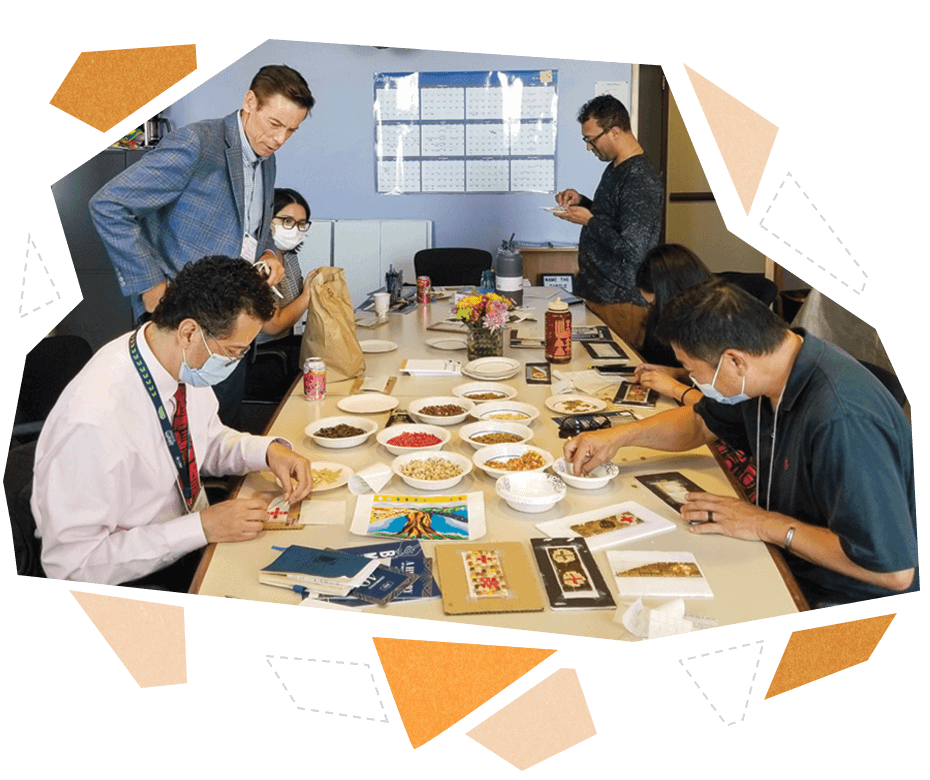
2022 Grantmaking
The PHPDA Health Equity Fund
The Health Equity Fund fuels PHPDA’s health equity mission. Made possible by Pacific Tower Campus lease revenue, grants are disbursed to organizations working to eliminate health disparities and improve health equity in King County.
- Major Grants: $50,000–$200,000 for annual renewable grants with a maximum of three consecutive years of funding
- Nimble Grants: Up to $30,000 for one-time, short-term projects such as research, pilot programs, and capacity building
”Among the many things we value in our partnership with PHPDA is their flexibility.”
Recovery Café, 2022 Major Grantee
New Major Grants for 2022
Organization & Project Title
Promoting equitable access to early childhood services for Latinx children in South King County
Approach
Partners with Sea Mar to reduce access disparities in early childhood developmental services through bilingual Family Navigators
Community Focus
Spanish-speaking Latinx children and families in South King County
Grant Amount
$190,000
Organization & Project Title
Treatment in Motion: Community-based rapid-access treatment for opioid use disorder
Approach
Treatment in Motion brings mobile resources where there are gaps in services and populations in need
Community Focus
Opioid users; primarily targeting low-income, homeless, POC, LGBTQ, and incarcerated populations
Grant Amount
$190,000
Approach
Doula and prenatal education services to improve birth outcomes
Community Focus
First-time Black parents and their children, 28 weeks pregnant to one year after birth
Grant Amount
$121,800
Organization & Project Title
Lutheran Community Services NW
Refugees Northwest: Enhanced mental health services for asylees and asylum seekers
Approach
Provision of culturally and linguistically appropriate mental health services and access to intensive case management
Community Focus
Refugees and asylum seekers
Grant Amount
$150,000
Organization & Project Title
Purpose Dignity Action (formerly Public Defender Association)
COVID Law Enforcement Assisted Diversion/Let Everyone Advance with Dignity (CoLEAD)
Approach
Provision of intensive case management, including behavioral health and assistance in maintaining permanent housing with stable employment
Community Focus
Populations involved with the criminal legal system due to behavioral issues, substance use, and homelessness
Grant Amount
$150,000
Organization & Project Title
Tubman Center for Health and Freedom
The Freedom Clinic: A community-designed healthcare pilot & school-based health center
Approach
Delivering needed health and wellbeing services to address physical and mental health, social determinants of health, and health education/systems navigation through the Freedom Clinic
Community Focus
Black students, parents, families, and staff
Grant Amount
$200,000
Renewal Grantees in 2022
Intersectionality
One of the greatest strengths of PHPDA grantees is their understanding of how overlapping historically marginalized identities—i.e., gender, racial, ethnic, and social—can negatively compound the effects of health disparities and increase barriers to care. These grantees tirelessly serve in this vulnerable space:
Entre Hermanos’ HIV Care and Prevention Program provides HIV prevention, health care, and services like PrEP to the LGBTQ Latinx Community, including immigrants and Spanish speakers.
Powerful Voices’ Culturally Responsive Mental Health Supports for BIPOC Youth project will expand trauma-informed mental health supports for BIPOC girls and gender nonconforming youth, including access to culturally responsive BIPOC therapists and healing justice practitioners.
Comunidad Latina de Vashon’s Strengths, Supports, and Resilient Action program is increasing access to culturally and linguistically relevant mental health support and resources, which are led by and for Latinos and guided by cultural healing approaches.
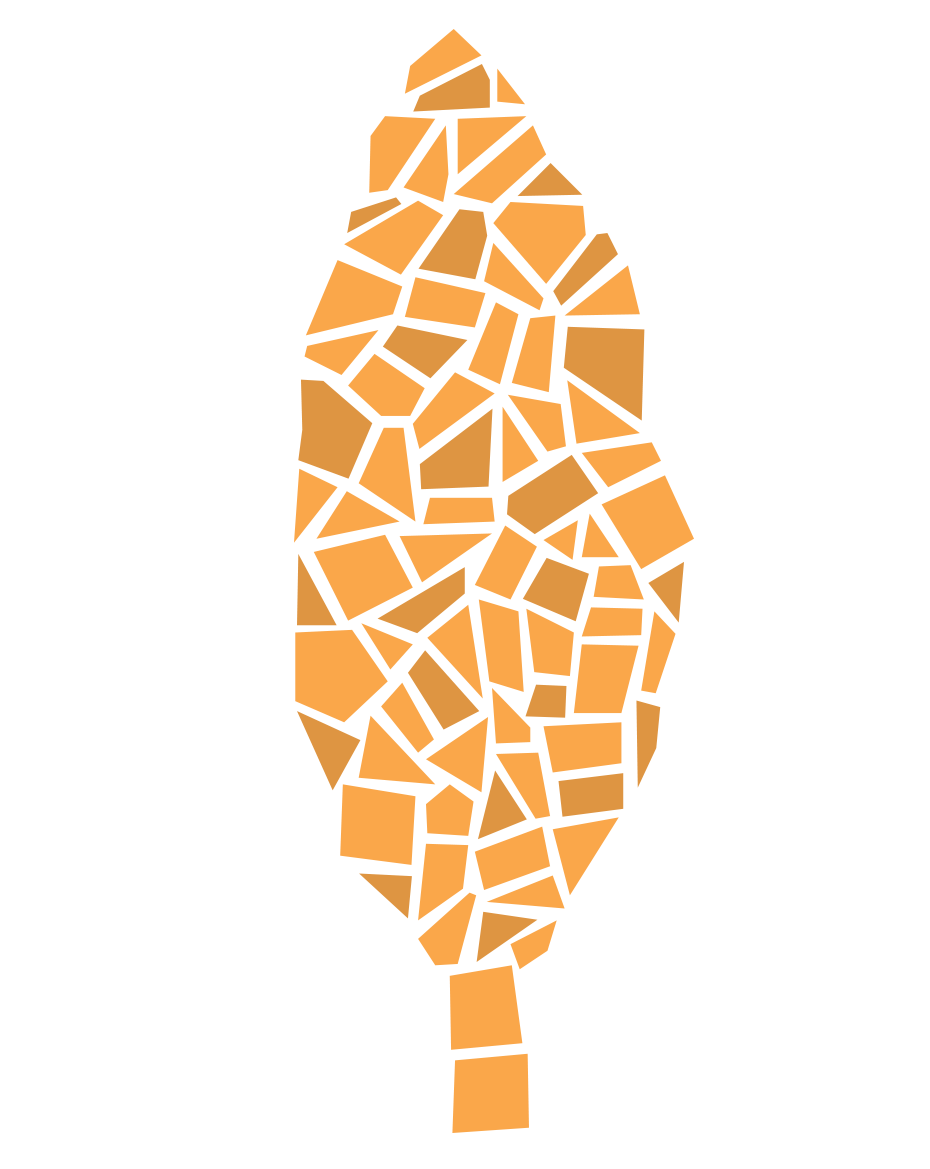
Culturally Relevant Care & Support
Health equity means providing culturally relevant and appropriate care. Health and wellness mean different things to different people, and our cultures shape how we understand, engage in, and receive care. These grantees aim to fill the cultural gap:
Asian Counseling and Referral Services’s Wellness for Asian Pacific Americans Nurse Project provides health education and increases healthcare literacy for low-income Asian Pacific Islander immigrants and refugees with serious mental illness.
Chief Seattle Club’s Indigenous-Designed Mental Health Program, a partnership with Cowlitz Tribal Health Services, targets homeless American Indians and Alaska Natives with housing and integrated services.
Seattle Indian Health Board’s Traditional Indian Medicine Parity Program is working to reduce disparities and improve health outcomes for American Indians and Alaska Natives in Washington State by advocating for and securing stable funding for Traditional Indian Medicine services.
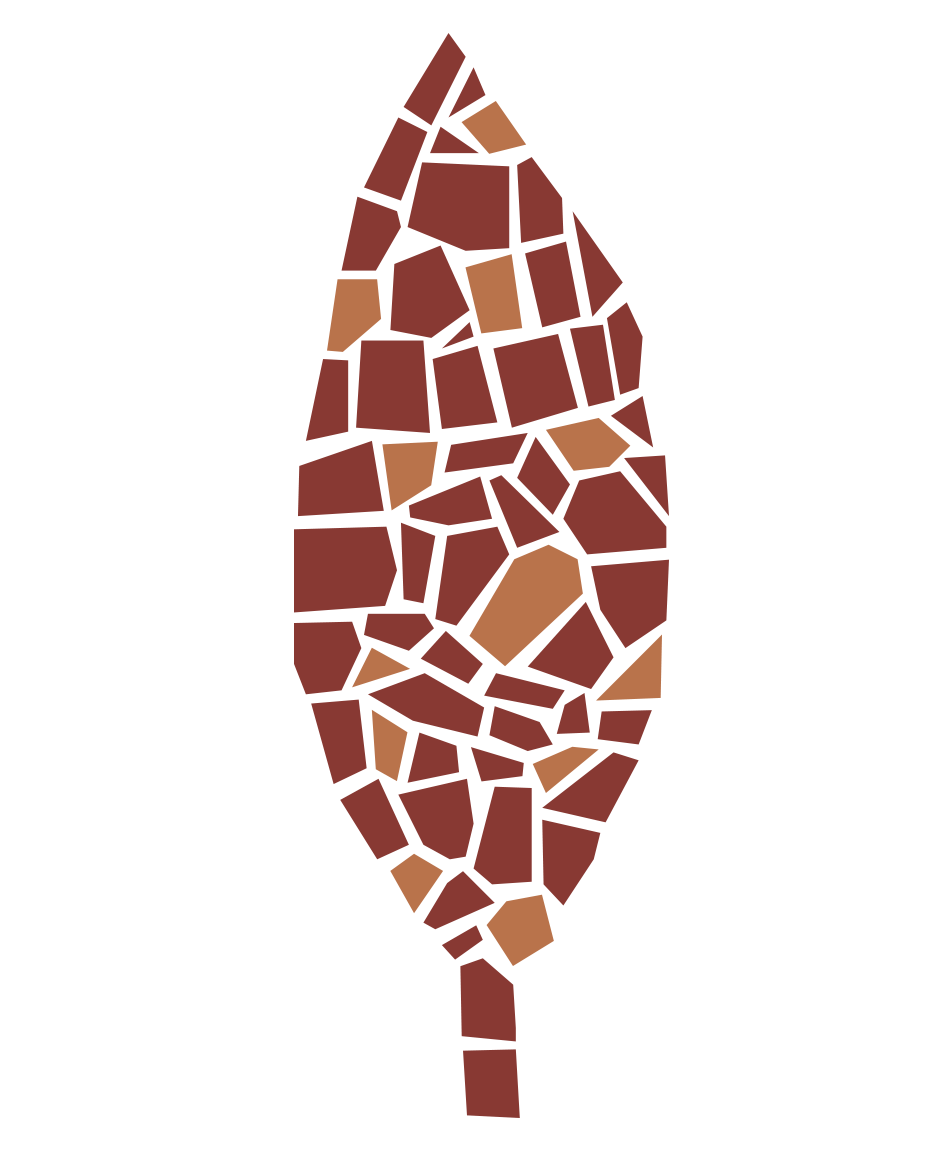
Community-Focused Health Education and Outreach
Many populations are harder to reach due to isolation, stigma, language and cultural barriers, and because our health systems are hard to trust. The following grantees push through these barriers and target those who are at most risk:
Villa Comunitaria’s Heart to Heart Program educates low-income Latinx communities on the risks and impacts of cardiovascular diseases and promotes preventative health practices.
East African Community Services’ Ubuntu Wellness Project empowers and educates low-income, English-Language-Limited Black immigrants and refugees in South King County on the impacts of diabetes, obesity, and mental health stigma.
Somali Health Board’s Parent Support Group and Behavioral Health Program helps Somali families understand how to navigate and advocate within our current health care, education, housing, and criminal systems, and aims to reduce mental health stigma and build more trust in the community.

2022 Nimble Grantees
CHOOSE 180
$30,000
Art therapy program for court-impacted young people
DESC
$15,000
Medical technology to decrease access and outcomes disparities for people with behavioral disabilities experiencing homelessness
Elizabeth Gregory Home
$30,000
Piloting behavioral health supports for women exiting homelessness
Empower Youth Network
$11,500
Healthy-community focus group for non-English speaking families in rural Snoqualmie
Encompass NW
$30,000
Encompass Maternal Infant Health program
HEP
$20,000
Engaging people who smoke drugs in overdose prevention services
HopeCentral
$15,000
HopeCentral Cares therapy center
Rainier Valley Midwives
$30,000
Birth tubs for BIPOC-led birth center
Sound Health
$18,850
A1C analyzers for use in improving health outcomes for people experiencing homelessness and mental illness
Washington Recovery Alliance
$29,958
Elevate Recovery Advocacy: Engaging the Latinx community
Exciting Updates
Affordable Housing Coming Soon to the Campus
PHPDA worked closely with Seattle Chinatown-International District Preservation and Development Authority (SCIDpda) for several years, and now the vision of affordable housing will become a reality. SCIDpda closed the purchase and sale agreement in 2022 and broke ground at the vacant North Parking Lot on the Pacific Tower Campus in January 2023. The 160 units will become homes to low-income to moderate-income working families, and the building will house services for residents in the building and surrounding neighborhoods.
Our New Strategic Framework Defines and Deepens Our Commitment to Championing Health Equity
In 2022, we developed a theory of change and strategic framework to guide our work. We were grateful to have guidance from Marcie Rubardt, PHPDA Technical Assistance Volunteer, and PHPDA Advisor Marc Provence, a UW School of Public Health faculty member, who facilitated our process. We arrived at four specific roles that are important to us:
Ally: Be an ally to grantees and communities working to achieve health equity through systemic change.
Resource: Steward the Pacific Tower Campus and assets to maximize contributions to health equity. Provide resources, information, and expertise to grantees.
Convener: Gather and connect diverse voices to work toward health equity.
Change Agent: Prioritize actions that address root causes of health inequity to catalyze change.
We look forward to partnering with you in all these roles to accelerate our collective advancement toward realizing health equity.
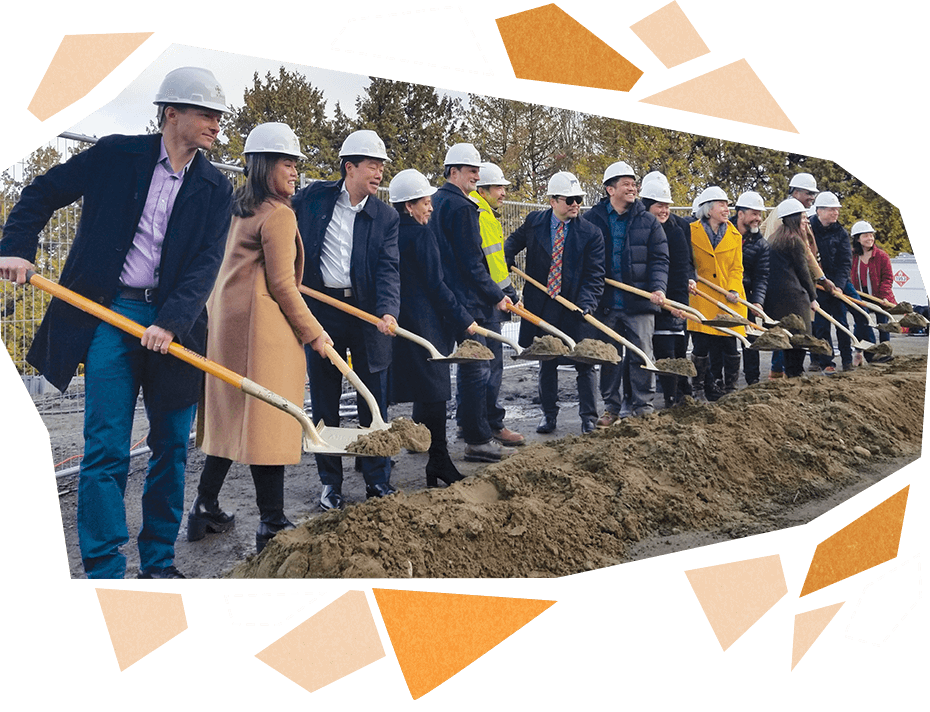
2022 UW Health Equity Scholars
Each year, PHPDA partners with UW to fund graduate students working on research or practical projects that can help our grantees and our communities further health equity in King County.
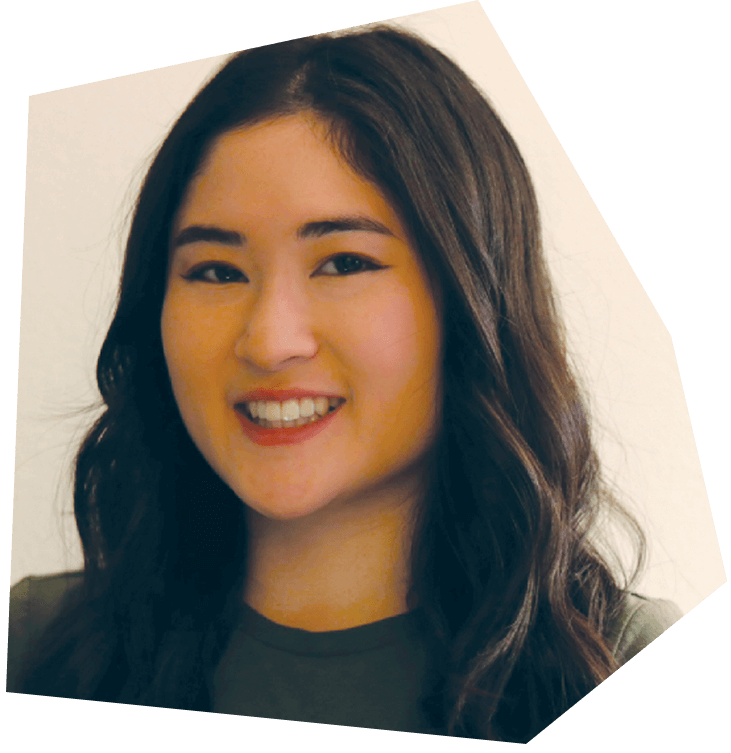
Lina Truong
The Barrier of Stigma in the Asian Community
The National Latino and Asian American Study indicates Asians are three times less likely to seek mental health treatment and are more likely to present with more severe mental health symptoms than white people. The largest barriers to seeking care were: 1) stigma, 2) language barriers, and 3) lack of knowledge about available resources. Lina reached out to community-based organizations, community leaders, and PHPDA grantees to explore solutions for overcoming stigma. The results of her research were presented as recommendations for service providers on how they can reduce stigma around mental health diagnoses, with the aim of increasing the numbers of Asian individuals in our community who seek treatment.

Amanda Shi
Disparities in Homelessness Services Databases in King County
Homeless programs and services are administered by many entities , and each one uses different databases to determine client eligibility for these services. These inefficiencies and data gaps help perpetuate cycles of poverty and chronic homelessness. Amanda’s project studied this disjointed system of homeless services: who’s missing from each database, what services they may be missing out on, and what King County can do next.
”As a result of my participation in the UW Health Equity Scholars program, I think more about the rights and needs of the communities that my work interacts with.”
Gift Nwanne, Past Health Equity Scholar (2020)
PHPDA Staff
Christina Bernard, MPA
Associate Director
Mallory Fitzgerald
Grants Manager
John Kim, JD
Executive Director
Whitney Regan
Office Coordinator
Gene Yoon
Communications Manager
Governing Council
Doris Koo
Chair & Finance Committee Member
Crescent Collaborative
Virgil Wade
Vice Chair & Program Committee Member
Chief Seattle Club
Robert Cook, MBA
Treasurer & Finance Committee Member
Formerly Washington State Housing Finance Commission
Gloria Burton
Secretary & Finance Committee Member
Catholic Housing Services
AyeNay Abye
Finance Committee Member
Tubman Center for Freedom and Health
Paul Feldman
Program Committee Member
Community Volunteer
Douglass Jackson, DMD, MS, PhD
Program Committee Member
UW Department of Oral Health Sciences
Nancy Sugg, MD, MPH
Program Committee Member
UW Department of Medicine at Harborview and Pioneer Square Clinic
Sue Taoka
Finance Committee Member
Community Volunteer
Finance Committee Strategic Advisor
Ellie Menzies
Finance Committee Member
Community Member
Program Committee Strategic Advisors
Michael Leong, JD
SeaMar
Martine Pierre-Louis, MPH
Harborview Medical Center
Strategic Advisor At-Large
Marc Provence, MPH
UW School of Public Health
